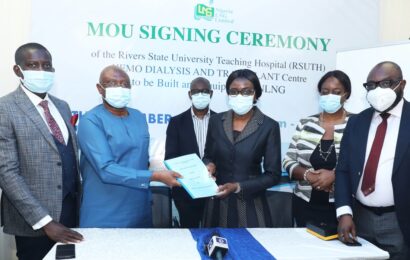
Ongoing efforts by the National Assembly to amend the Nigeria LNG Act is a direct threat to the expected 18, 000 construction jobs for Trains 7 and 8, General Manager, External Relations Division, Kudo Eresia-Eke has said.
Speaking at an interactive session with Journalists in Lagos on Wednesday, Eresia-Eke emphasized that NLNG is proudly the country’s biggest and most successful indigenous company, run by 100% Nigerian Management and over 95% Nigerian staff, “yet competing effectively globally. It is today the country’s highest tax payer and the 4th largest supplier of LNG in the whole world”.
He explained that the potential threat to jobs is coming at a time when the Niger Delta, and the country at large, is in dire need of jobs, “Needless to mention the impact of such a huge number of jobs on the peace of the Niger Delta region and the economy of the country”.
“The House of Representatives on May 9, 2017, passed a bill seeking to amend the Nigeria LNG Limited (NLNG) Act (Fiscal, Guarantees, Assurances, and Incentives) subjecting the company to 3% Niger Delta Development Commission (NDDC) levy. We understand that this bill will be progressed to the Senate. We think that this is a huge error to pass law as it is a direct collusion with the Federal Government’s drive to attract Foreign Direct Investment (FDI). These are the reasons why these amendments are not in the interest of Nigeria:
PULLING DOWN NIGERIA’S NO 1 COMPANY

“NLNG is a pride to Nigeria and the nation’s flagship corporation whose model is being considered for replication in various sectors of the economy. But the fact that the company is being targeted by this amendment while fellow gas purchasers and processors in other businesses such as fertilizer, petrochemical, and electricity are left untouched, gives the world the impression that Nigeria would rather drag down than support its best.
“NLNG succeeded largely due to the provisions of the NLNG Act, which gave investors the confidence to invest in the country. But with an amendment, that confidence will be eroded and jeopardize critical ongoing investments for the continued survival of the company; critical among which is the $1 billion needed annually for the next three years to guarantee the current operation of six existing Trains.
“After 35 years of unsuccessful effort, NLNG could only be incorporated upon the enactment of the NLNG Act which then enabled the establishment of the company. To thus amend the basis of the investment in Nigeria will obviously breach the promises of Government to its co-investors. This will badly damage the reputation of the country, its credit rating, and ability to attract or even retain future investments.
“Any amendment will also mean an immediate potential loss of foreign investment of US$25 billion in respect of Trains 7 and 8 investments (US$15 billion by the gas producing and supplying companies [Upstream], and US$10 billion for construction of the project).
“NLNG purchases gas from upstream suppliers, who already pay 3% NDDC levy, which would have otherwise been flared. The company has almost single-handedly caused the reduction of gas flaring from about 65% in 1999 to about 20% currently. With the required investment, NLNG is capable of reducing that figure even further upon the completion of the Trains 7 and 8 Project.
“Any Amendment will however ultimately result in a return to high flaring if NLNG ceases to exist with attendant negative impact on the Niger Delta environment.
“NLNG has a robust and sustainable development programme in the Niger Delta which will of course cease if the company dies. This company supports the provision of 24-hour power supply on Bonny Island, provision of water supply, construction of roads, schools, scholarships etc. costing nearly US$200 million so far.
“Furthermore, NLNG recently committed to providing billions annually towards the development of Bonny Kingdom for the next 25 years to turn Bonny into a mini Dubai. “It also recently offered major financial support to the Federal Government towards the construction of the Bodo-Bonny Road – a vital road neglected for decades, expected to link the mainland through Ogoni, Andoni, etc. to Bonny. With these legislative constraints, breaking fundamental promises to investors, the company would definitely begin to pine away and the Niger Delta region would be a prime loser”.




